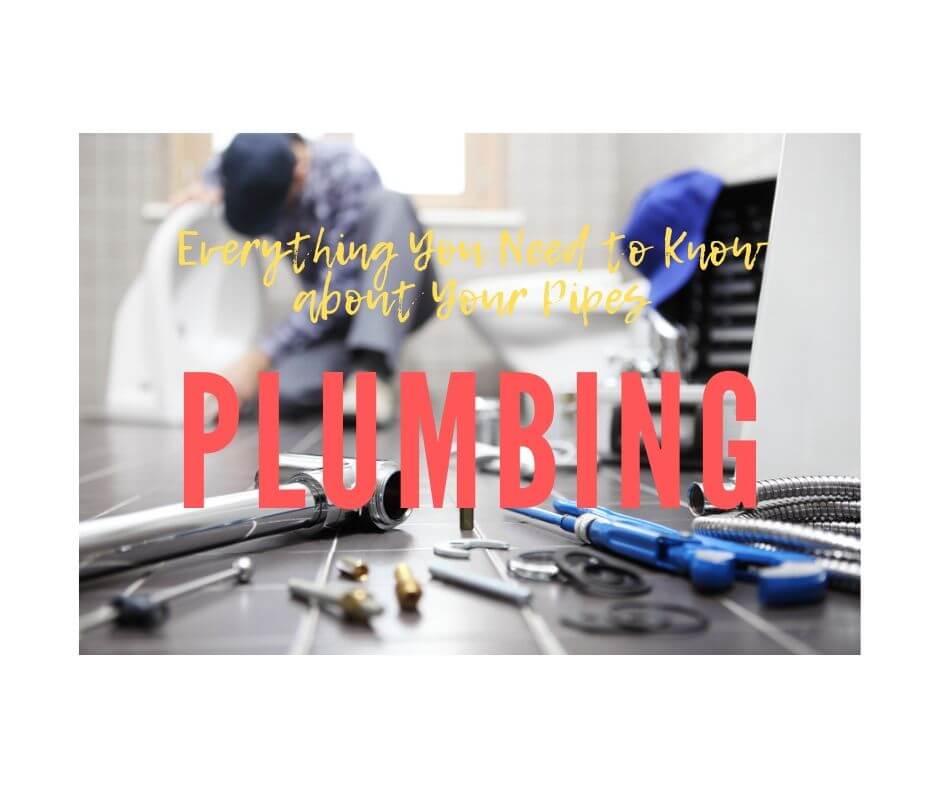Keeping the entire house clean and maintained is already hard enough, but having to worry about the pipes is not something that any homeowner expects to do. Even though the pipes and plumbing system are generally designed for durability, you still need to inspect them from time to time. Regular maintenance is necessary in order to prevent any possible hazards. From corroded pipes to leakages, flooding, and even severe health problems, pipes can be a real mishap. Nevertheless, here is everything you need to know about pipes in your house.

Table of Contents
Lower The Pressure
As strange as it sounds, but high water pressure can harm your pipes in many ways. Since brass, copper and galvanized steel pipes have an average lifespan of 50 years, you should try to do your best to regularly and properly maintain them. You might love taking long showers, filling up the bath and stockpot, but that actually stresses the pipes and can lead to potential leakage. So, high water pressure forces pipe joints and faucets to work briskly, reducing their lifespan. To prevent that from happening you can get a hose bib gauge which will help you measure the water pressure. And pay attention that you keep a normal water pressure between 40 and 80 psi.
Soften The Water
The minerals such as magnesium and calcium build up inside your pipes over time restricting the water flow and increasing the water pressure. Hard water can occur almost anywhere, but it can easily shorten the lifespan of your pipes because they corrode joints and fitting much faster, consequently block the natural water flow. You can easily spot if you have hard water by just looking for the sign of a white buildup on shower heads or faucets. There are a few solutions to this problem without immediately calling a plumber. First, install a water softener with sodium to counteract the minerals located in the water. A more costly option is to get a whole-house water softener with a reverse-osmosis system that will give you the purest water possible, only you would need to invest more than a thousand dollars.
Put an End To Clogging
Probably every single person has experienced the problem when the water just doesn’t go down the drain. Most drains can clog: baths, toilets, wash basins, and even sinks can be clogged from dirt and hair binds to feminine hygiene products and cotton swabs and wipes. Especially in the kitchen, you have to keep food scraps out of the kitchen drains. However, if a major clogging occurs it can easily lead to leakage. You have to rely on expert plumbing services to stop the leaking since it will be hard to detect where the pipes have clogged and burst, and even harder to stop the leaking water from damaging your belongings. That kind of problem should be resolved in time and by professionals unless you wish to completely renovate the bathroom (or house) and shorten the lifespan of waste pipes.
Minor Adjustments
Instead of simply waiting for your pipes to clog, leak, or burst, try to detect and mend the problem in advance. There are a few simple things that you can do to keep your pipes maintained and avoid future mishaps and leakages. For instance, don’t pile up and block the water pipes under your sink, every once and a while take a look under it to prevent water from dripping. Next, always check that your radiators are at a good level, so make sure that the valve is pitched back to the source of the steam. Also, try to replace old and corroded faucets, because faucets are mechanical and they are eventually bound to leak. Installing a new bathroom and kitchen faucets will surely save you a lot of money since it is cheaper to buy a new faucet than to deal with damages that leaks can cause.

Focus On The Details
Pipes can really make a nasty mess if you don’t maintain them accordingly. There are some easy and productive things that you can do to prevent some major damages, and above all to keep the pipes “in shape”. Inspect the back part of your walls in order to trace the leak. Sometimes you only need to tighten the pipes either with your hands or with a wrench to stop the dripping. Then, if your water heater happens to leak, don’t waste your time and money to fix it, but rather buy a completely
new one. Last but not least, try to avoid harsh chemical solutions to unclog the drains and pipes, because with time they actually erode the pipes from inside. You can use plain vinegar or baking soda to clear out the grime.
Routine maintenance will catch small problems with your pipes and plumbing. In order to avoid the stress of fully renovating your house, follow these tips and perform annual plumbing maintenance and you are good to go.

